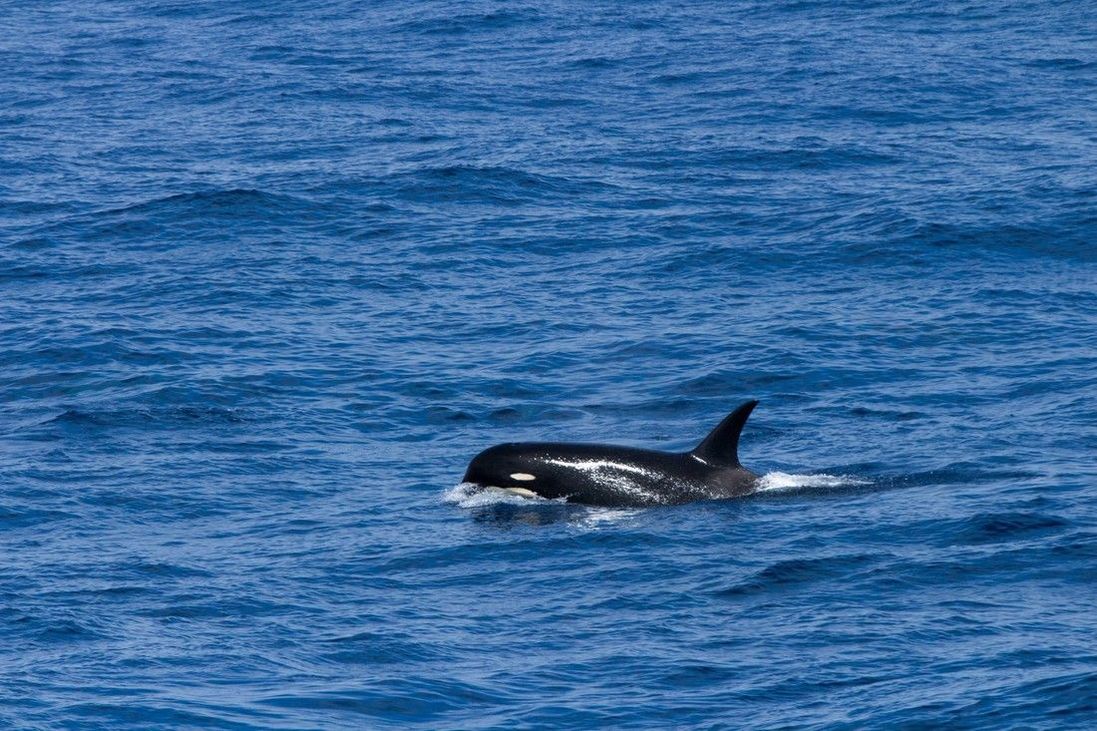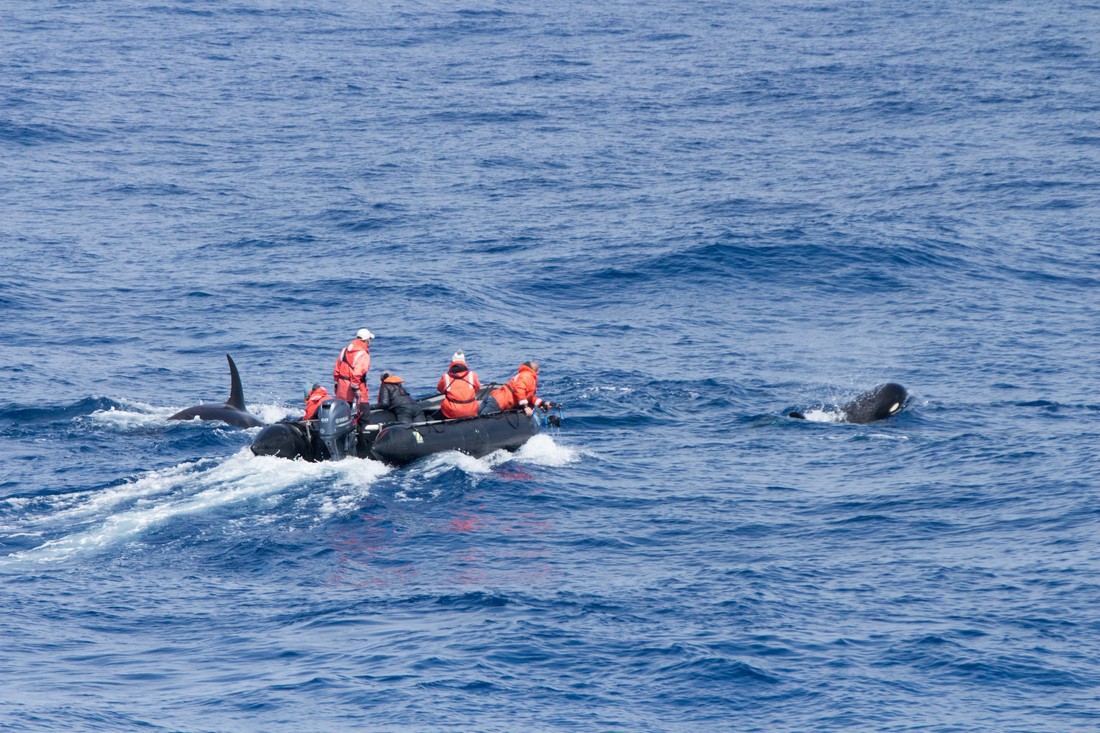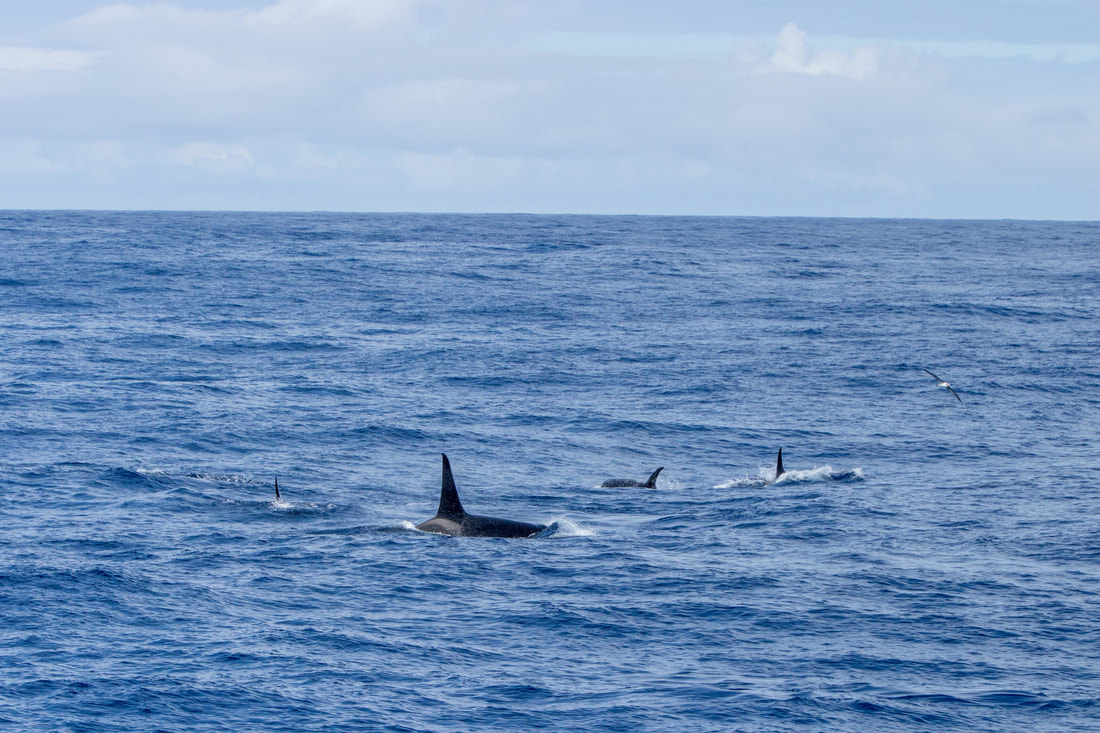Filmmakers on board recorded the first-known underwater footage of these hunters who have only recently been scientifically described, and have only been encountered by chance in far southern waters. (See full coverage from National Geographic.)
While this wasn’t an Adventure Scientists expedition, the experience struck Gregg as indicative of the power of the Adventure Scientists model and mindset. Because Type D killer whales live in such remote and inhospitable regions and have been observed so few times, no scientific expedition has yet studied them in the wild. That means every chance encounter poses the opportunity to learn more about their population dynamics, hunting behavior, preferred locations, and more.
And not only can travel and adventure contribute to science, the connection to the larger story of nature and the way the world works can enrich even the most already-satisfying experience abroad.
Want to have that experience yourself? Take a look at our current projects and become an Adventure Scientists volunteer this summer!



